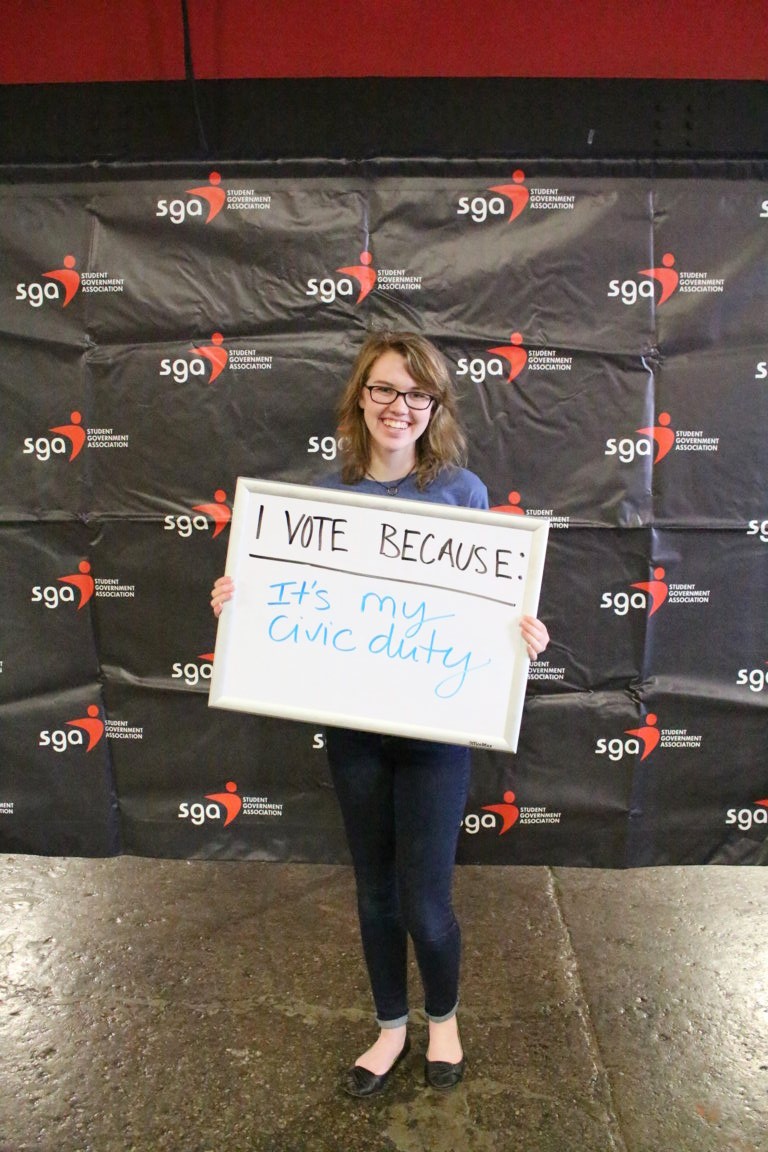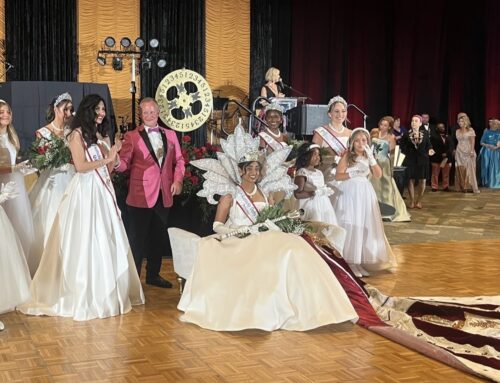By Byron Hoskinson–
On Oct. 11 – Kentucky’s voter registration deadline – the nonpartisan group Vote Everywhere held a voter registration drive in front of the SAC to allow college students the chance to vote.
With 75.4 million potential voters, Millennials could be the single most electorally influential demographic in America – if only they showed up at the polls. Just 46 percent of 18-35 year-olds voted in the 2012 presidential election, compared to 71 percent of Baby Boomers, according to Pew Research Center.
Though there was no consensus among Cardinals concerning who is the best candidate, the sentiment that voting was important was clear.
“Many people have fought and died for our democracy and, because of that, we have an obligation to exercise our right to vote,” senior political science major JaVaughn Hardaway said.
Hardaway said she was most motivated to vote by the issues of healthcare and criminal justice reform, which she believes Democratic nominee Hillary Clinton is most capable of addressing.
“Healthcare is a right, not a privilege,” Hardaway said, adding Clinton’s plan to improve the Affordable Care Act as a primary reason she intends to vote for Clinton. Hardaway said she also likes Clinton because of her commitment to public service as a former First Lady, senator and Secretary of State, experience with foreign policy and ability to work with others, though she still had concerns about Clinton.
“Her greatest asset could be her biggest liability: that she’s spent the last 30 years in national politics,” Hardaway said.
Hardaway also described the importance of voting for more than just the presidential ticket.
“State and local elections are just as, if not more, important than national ones, and could impact my life more than a presidency could,” she said.
Sophomore biology major Emily Hoesli agrees with Hardaway about the importance of voting, though she said she will be casting her vote for Republican nominee Donald Trump. Hoesli described voting as a responsibility for Americans.
“If I’m going to complain about our government, I should at least have a say in the matter of who is elected to run it,” Hoesli said. For her, the most important issues are the economy and foreign policy, which she believes Trump can effectively handle.
“Trump is a businessman, so he knows economics,” Hoesli said. She said she also likes Trump’s straightforward speaking style but also had reservations about the candidate.
“He’s been in the business world, but not in the political one before, so I don’t know if he knows the legislative side of politics,” Hoesli said.
Derlwain Weathers, a junior psychology major and paralegal, said he first registered to vote two years ago through an on-campus voter outreach program.
Despite being registered in time for the 2014 midterm elections, Weathers abstained from voting then because he did not think he knew enough about the candidates. “It would have been irresponsible for me to cast an uninformed vote,” Weathers said.
He listed his top political priorities as improving public education systems, criminal justice reform and ending gerrymandering.
“Gerrymandering silences those demographics most prone to living in vulnerable situations,” Weathers said, referring to the process of manipulating political boundaries to favor a political party.
Though he will be voting for Clinton, Weather condemned the two-party system as a dynamic that forces Americans to compromise their values in order for their votes to matter.
“I hate that I had to choose a party,” Weathers said. “Voting in a duopoly corrupts the democratic system.”
Weathers said he voted for Bernie Sanders in the primaries but disliked that Sanders had to run as a major-party candidate to have a chance of being elected. Sanders is currently the longest serving Independent in congressional history.
Weathers said he also liked Kentucky Senator Rand Paul because of his libertarian streak and would have voted for him had Paul won the Republican nomination.
Even students who will not be voting for a presidential candidate said they believed voting to be important, especially for state and local races.
Junior mathematics major Jared Moore said he will not cast his ballot for any of the presidential nominees, but he believes his vote matters.
Moore cited education, minimum wage and climate change as the most important issues to him, but does not think any of his concerns will be substantively addressed regardless of who wins the White House.
“I’ve always had the mindset that whoever is the president doesn’t matter because I feel that I am not personally affected,” Moore said.
Moore said he thinks the anemic election turn-out of Millennial voters is due to a belief that their voices will go ultimately unheard.
“I think young voters don’t vote because people feel that their vote isn’t going to affect the final results of elections,” he said.
Moore also thought that certain issues important to him simply went unaddressed by the political establishment, specifying environmental concerns.
“I think that climate change is the one major issue that being ignored,” Moore said.
While some students can vote but elect not to, others are not yet eligible but look forward to the day they can.
Nijimbere Lahayiloyi, a sophomore political science major who is matriculating from JCTC this fall and will start classes at U of L in the spring, emigrated from Burundi and cannot vote until he completes the naturalization process.
“I believe voting matters very much. It’s how citizens express their democratic power,” Lahayiloyi said. He said voting is especially significant since it is not something every country allows its citizens to do.
Lahayiloyi said that in future elections, his vote will go to the candidate who places the highest value on human rights, protecting the environment and ensuring the country has access to quality healthcare and education. He stressed the priority of human rights, saying that “all other rights and powers proceed from human rights.”
“First and foremost, we are human,” Lahayiloyi said.




